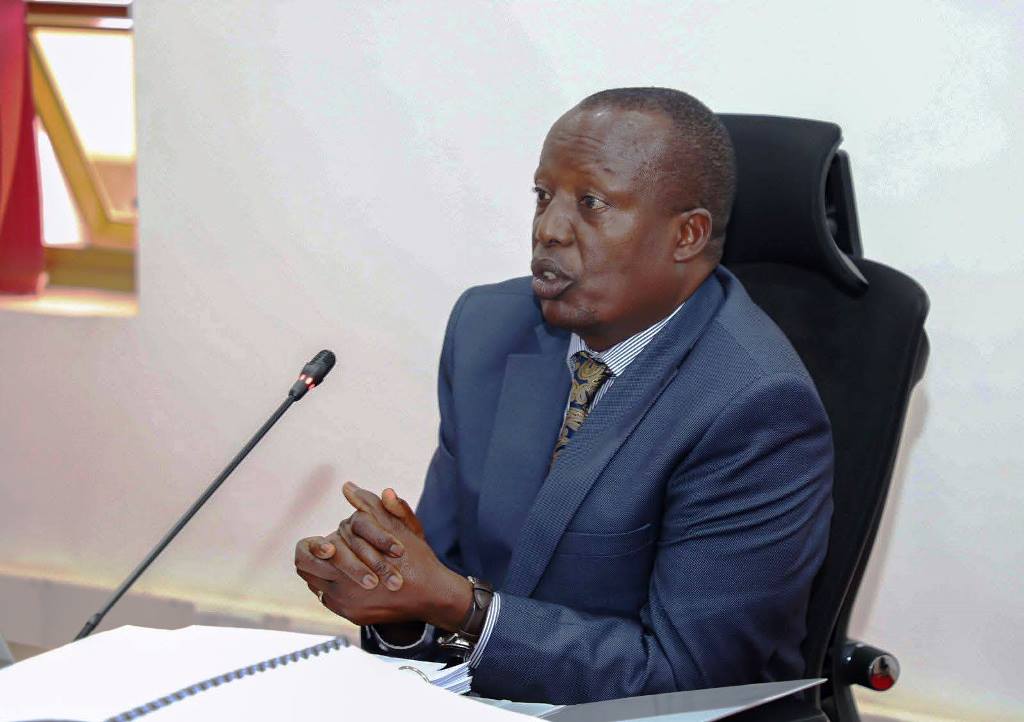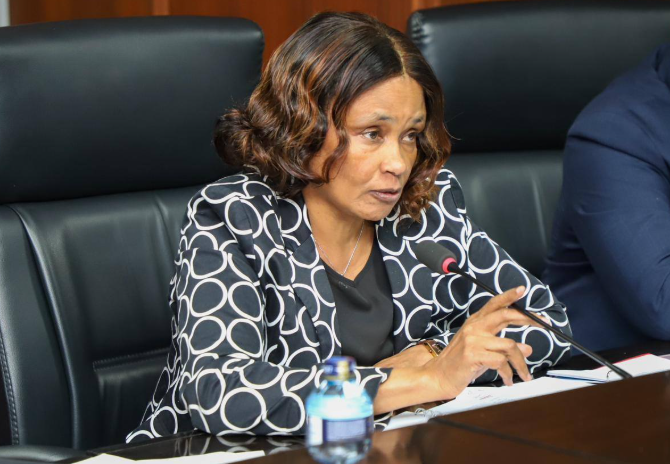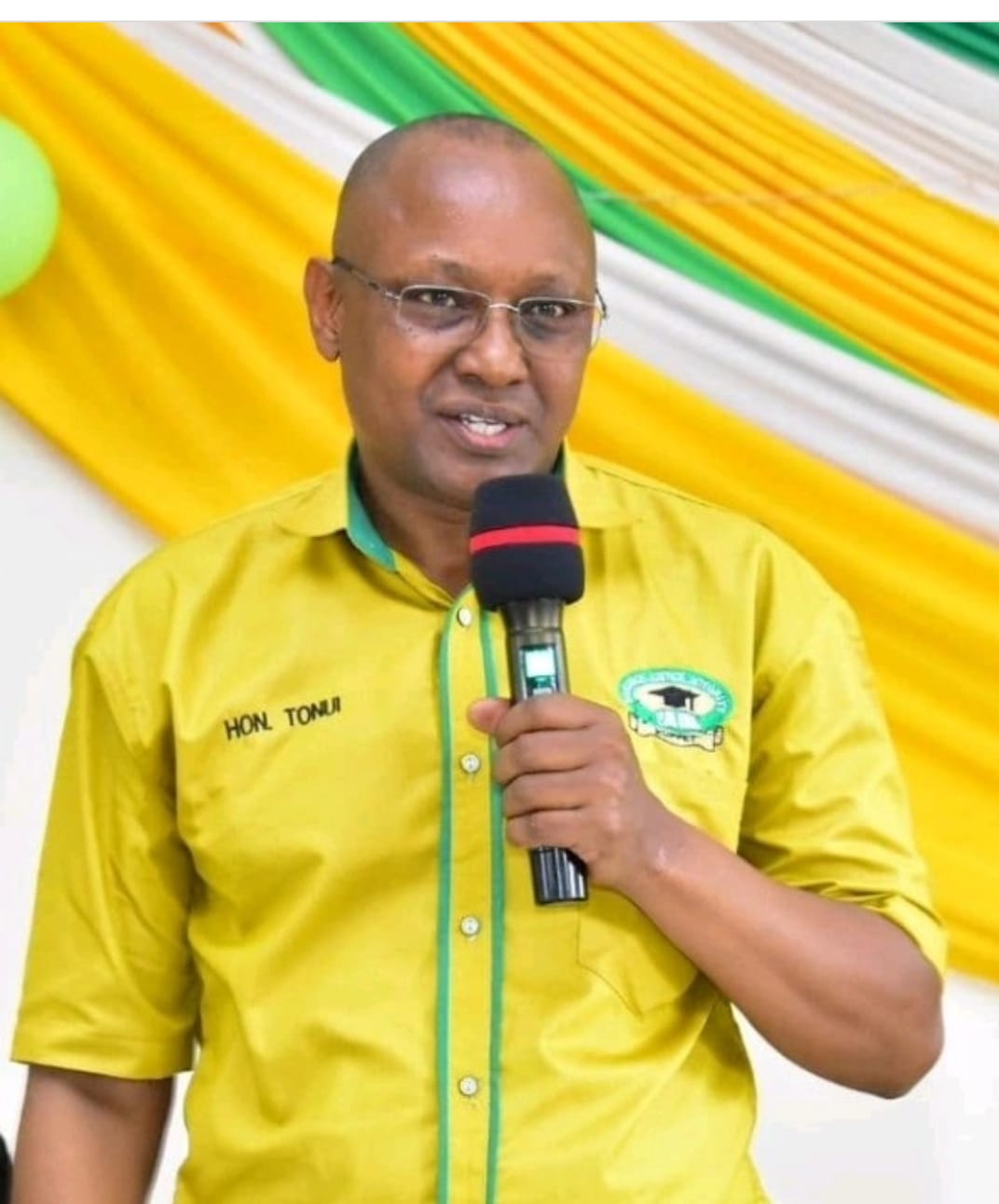The government is rebranding and repositioning the Technical and Vocational Education and Training (TVET) sector, a move that will see National Polytechnics being accredited by the Kenya National Qualification Authority (KNQA) to offer their own Recognition of Prior Learning (RPL) programmes.
The accreditation will see the institutions being granted the Qualification Awarding Institution (QAI) status that is equivalent to a charter in universities, which will now see the institutions offer their own examinations and curriculum.
Speaking during the first graduation ceremony of Mukurwe-ini Technical Training Institute Principal Secretary in the State Department of TVET Dr. Esther Muoria noted that the government has so far awarded QAI status to three national polytechnics and that more will soon be accredited.
“I’m happy to report that, to date 3 National Polytechnics have already been granted the Qualification Awarding Institution (QAI) accreditation by the KNQA and more National Polytechnics are set to acquire the same status in due course. The QAI status will enable the Polytechnics to proceed and implement the RPL programmes,” said Dr. Muoria.
The PS also observed that in order for TVET to support the informal sector, the State Department is developing a collaboration framework with Juakali Associations with a view of partnering in supplying expertise, labour and skills in the Affordable Housing Programme (AHP), in the implementation of the RPL, in Entrepreneurship Training, in the establishment of common user facilities, in the development of incubation centres, among other programmes.
This is in a move to de-link TVET institutions from national examination bodies, a shift expected to cement their position in providing skills and also work with industry players in developing curriculums and administering practical tests to match the skills needed.
Any institution established by the University Act no 42 of 2012, a National Polytechnic with a legal order to award qualifications, Institutions in Government Ministries with a legal order to award qualifications, Institutions established by an Act of Parliament to develop and award qualifications and Foreign institutions accredited in their home countries as qualification awarding institutions are the only groups that can qualify for award of QAIs in the country by KNQA.
Before an institution is awarded the QAIs status by KNQA it has first to undertake a self-assessment against a criterion provided by KNQA and submit the documents together with supportive evidence to the Authority.
Thereafter, KNQA appoints a panel to validate the application for accreditation with a panel of expert evaluating the self-assessment report provided by the applicant institution, visiting the applicant institution to carry out a suitability assessment, completing the report and making recommendations, and submitting it to KNQA with a copy to the institution.
After that, KNQA considers the panel’s recommendations and informs the applicant institution and finally it publishes and gazettes the accredited institutions, and issues the necessary documentation confirming the institution’s status as an accredited qualification awarding and/or assessment institution.
Meru National Polytechnic was the first National Polytechnic to be awarded the QAI status in March this year followed by Nyeri and Coast National Polytechnics, which will now see the institutions develop their curriculum, offer tests and award certificates
Change in training
Dr. Muoria also noted that the State Department is collaborating with development partners in the introduction of a dual training system where there is 70 per cent industry and 30 per cent theory, stating further that the shift is meant to focus on training in the industry, with the industry and for the industry.
“With the changes in the TVET, it is evident that the new strategies need to be employed to shape sector for proper skilling. Employment and Entrepreneurship trends all over the world have changed. The employers are looking for demonstratable employability skills as opposed to Certificates as has been the case before,” said Dr. Muoria.
“Employers are now asking “what can you do” as opposed to “what certificate do you have”. This therefore calls for the TVET sector to change their way of delivering training and go the employability skilling way,” she added.
In addition, she stated that the state department has initiated a robust curriculum reforms agenda, adding that the National Polytechnic will be expected to play a leading role, since their status allows them to prepare curricula, assess and certify.
She further urged Technical Training Institutes (TTIs), Technical and Vocational Colleges (TVCs) and Vocational Training Centres (VTCs) to join hands with the National Polytechnics in their respective regions in the development and implementation of Competency Based Education Training (CBET) curricula that is anchored on practice and industrial exposure than theory even as they await for the re-establishment of TVET-CDACC, so that graduates can fit in the modern world of work.
Concerns have been raised that though TVET institutions are expected to impart practical skills to learners, there is a disconnect between courses offered and market demands with industry players criticizing the nature of technical tests offered by the Kenya National Examinations Council (KNEC), saying they are too academic and lack enough practicals.
The 2023 Economic Survey report shows that enrollment in TVET institutions grew by 11.7 per cent from 503, 800 in 2021 to 562,500 in 2022, with that of National Polytechnics increasing by 10.6 per cent from 102,700 in 2021 to 113,600 in 2022 mainly on account of 18.8 per cent increase in female students.
Student enrolment in VTCs declined marginally by 0.5 per cent to 162,300 in 2022 while that of Public and Private Technical Training institutes increasing by 12.4 per cent and 34.2 per cent to 169,700 and 117,000 respectively.
On loan and bursary uptake in TVET institutions, the report showed that in 2021/22, 15.5 per cent of bursary applicants from TVET were awarded bursaries with the number of TVET students awarded bursaries decreasing marginally from 20,066 in 2020/21 to 20,002 in 2021/22; while the amount of bursary awarded also declined from Ksh100 million in 2020/21 to Ksh99.9 million in 2021/22.
By Roy Hezron
Get more stories from our website: Education News
You can also follow our social media pages on Twitter: Education News KE and Facebook: Education News Newspaper for timely updates.





